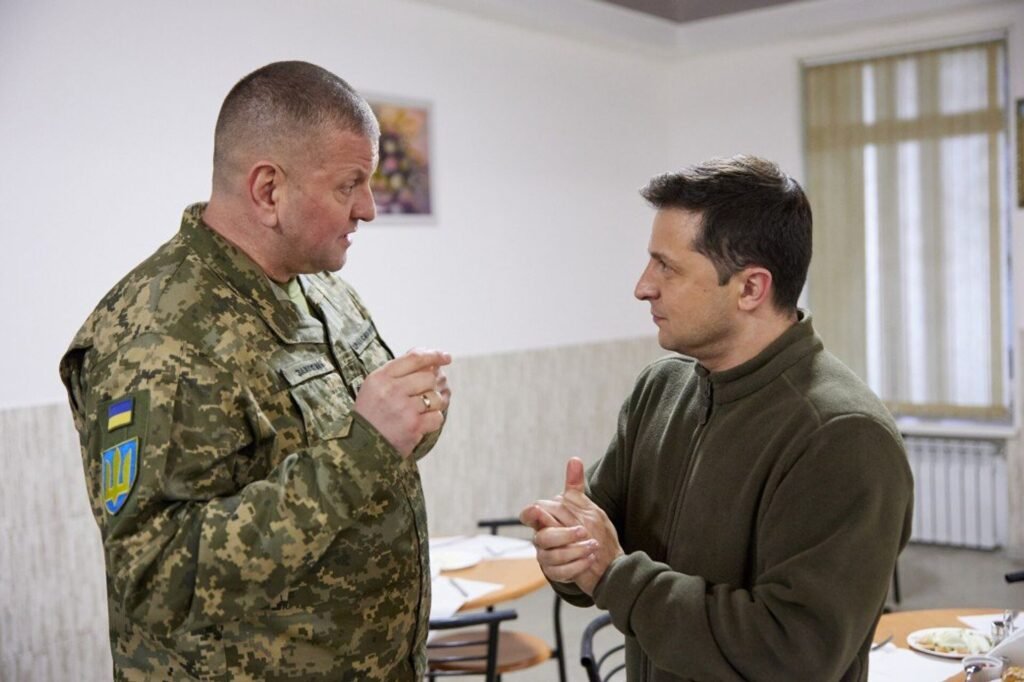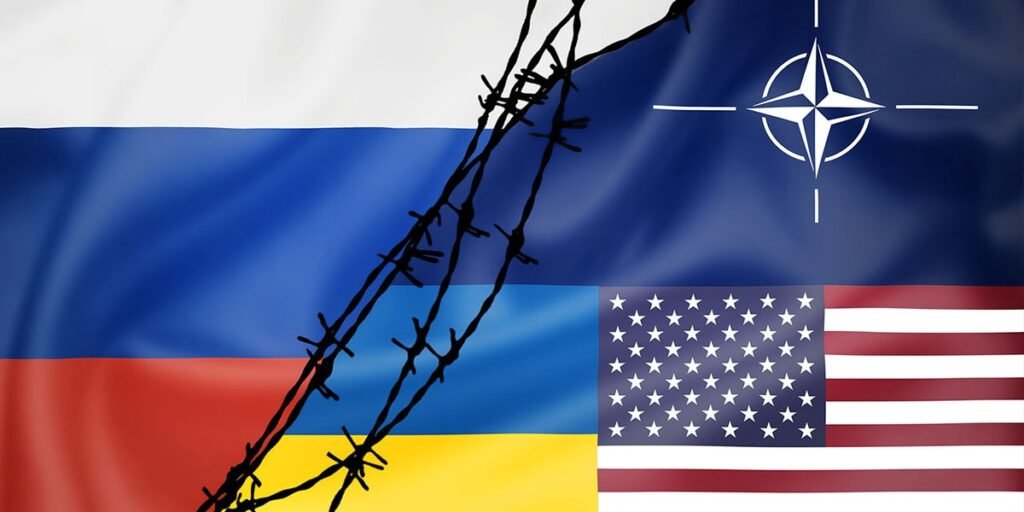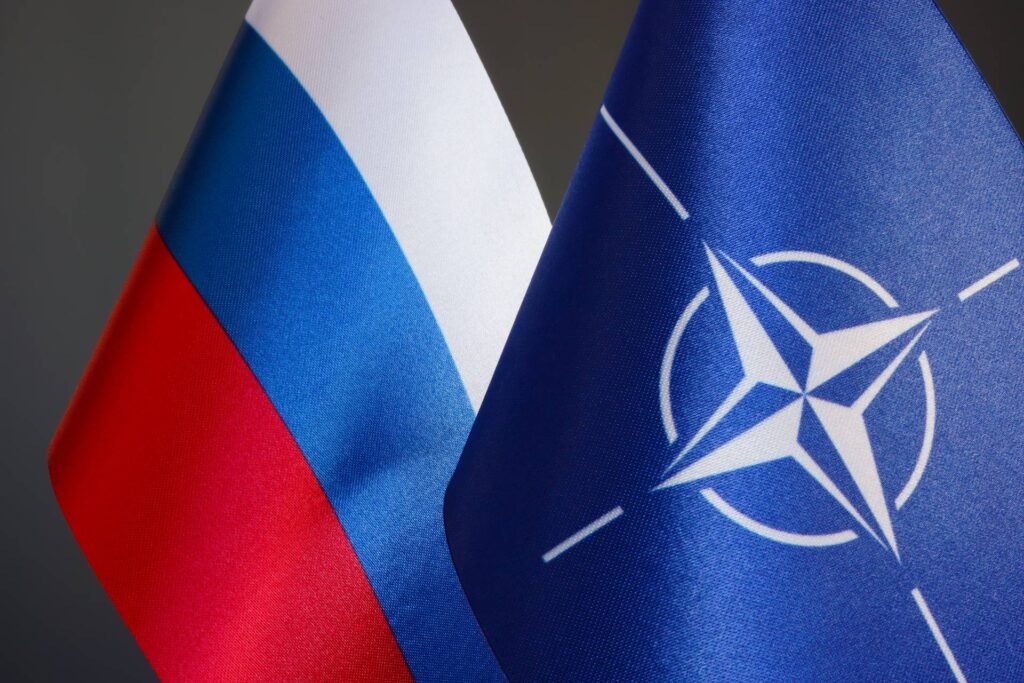As 2023 draws to a close, the much-anticipated Ukrainian counter-offensive has ended in failure, sparking mutual recriminations within Ukraine and across its Western imperialist backers. The once-endless flow of financial and military support from Washington, Brussels, and Berlin is now dwindling, pushing President Zelensky toward the unthinkable—peace talks with Putin. Such negotiations, once scuttled by Western powers eager for regime change in Moscow, are now being forced on Ukraine by the very same imperialist actors, revealing a crisis in their global strategy.
While Ukraine faces the prospect of negotiating from a position of weakness, the war has reached a point of no return. Putin remains resolute, stating that there will only be peace once Russia’s objectives are fully achieved. For NATO, the danger is not merely a costly stalemate, but the growing threat of an outright defeat, with the balance of power tilting in favor of Russia.
The Realities on the Ground
The shift in tone across Western media and think tanks reflects the grim reality on the battlefield. What was once confidently predicted to be a quick and decisive defeat for Russia has turned into a prolonged and painful war of attrition. The military and financial implications of a Russian victory are now being openly discussed, even among traditionally hawkish outlets. The Institute for the Study of War, a major voice in supporting Western intervention in Ukraine, admitted that “a Russian conquest of all of Ukraine is by no means impossible” if military aid from the U.S. and Europe is cut off.
These gloomy assessments are not just confined to Western analysts. Ukrainian General Valery Zaluzhny’s high-profile interview with The Economist confirmed the dismal state of Ukraine’s counter-offensive, where months of fighting have yielded minimal territorial gains. The general’s candid remarks about the failure of Western military support to produce a breakthrough reflect a growing frustration within Ukraine’s leadership. Behind the scenes, NATO officials have also criticized Ukrainian strategies, such as the prolonged defense of Bakhmut, for wasting valuable resources in a political war of symbolism rather than military pragmatism.
Internal Discord in Kyiv
These failures on the battlefield have spilled over into Ukraine’s domestic political scene. Tensions between President Zelensky and General Zaluzhny have become public, with the latter subtly blaming the West for failing to deliver the advanced technology and weapons needed to shift the balance of power. Zelensky, for his part, has attempted to maintain his grip on power by warning military leaders to stay out of politics. However, polls show that General Zaluzhny is gaining political capital, with some reports suggesting his hypothetical party could even outperform Zelensky’s in a future election.
The fractious mood in Kyiv is mirrored by Ukraine’s oligarchic class, where support for Zelensky is wavering.

Former President Petro Poroshenko has reemerged as a prominent critic, and Kyiv Mayor Vitali Klitschko has openly compared Zelensky’s leadership style to Putin’s. These divisions within Ukraine’s ruling class highlight the political instability that has been exacerbated by the ongoing war, as rival factions position themselves for power in a post-conflict Ukraine.
NATO’s Dwindling Support
As Ukraine’s counter-offensive faltered, Western support began to wane. In the U.S., President Biden has struggled to push through new military aid packages, facing resistance from Republicans and a growing war-weariness among the public. In Europe, similar challenges are emerging. Germany’s Chancellor Scholz faces increasing budgetary constraints, while far-right parties like the Alternative for Germany (AfD) have gained traction by opposing continued support for Ukraine. Even within the EU, unity is crumbling. Hungary’s President Viktor Orbán has blocked approval of a crucial €50 billion aid package, while the newly elected far-right government in Slovakia and electoral victories by similar forces in the Netherlands suggest that NATO’s support for Ukraine may soon dry up.

The West’s inability to produce enough military supplies to meet Ukraine’s needs has further weakened its position. For months, NATO has been depleting its own stockpiles to send weapons to Ukraine, but even these efforts are proving insufficient. Admiral Rob Bauer, a senior NATO official, admitted that “the bottom of the barrel is now visible,” as the alliance struggles to maintain the war effort. Meanwhile, Russia’s sanctions-defying economy is growing, and its military production has outpaced the West’s, allowing it to gain the upper hand on the battlefield.
Ukraine’s Bleak Future
For the Ukrainian people, the toll of this prolonged conflict has been devastating. Hundreds of thousands of soldiers and civilians have been killed, and millions have fled the country/
Ukrainian morale is at an all-time low, with reports of widespread draft dodging and desertions. The failure of the counter-offensive, combined with rising disillusionment among the population, has eroded the once-strong nationalist fervor that drove the early stages of the war.
As the war drags on, Ukrainians are beginning to question whether their sacrifices have been in vain. The rejection of a Russian peace offer in early 2022—an offer that would have spared Ukraine from much of the devastation it has since endured—is now seen by many as a tragic mistake. The West’s insistence on prolonging the war has left Ukraine with little to show for its efforts, other than a battered economy, a depleted population, and the grim prospect of a forced settlement that will likely involve ceding territory to Russia.

The Global Implications of NATO’s Defeat
The prospect of a Russian victory in Ukraine represents not just a defeat for Ukraine, but a humiliation for NATO and the broader Western imperialist order. What began as an effort to weaken Russia through a proxy war has instead exposed the declining power of U.S. imperialism. The military alliance that once seemed unassailable has been shown to be vulnerable, unable to decisively defeat a regional power like Russia despite its overwhelming military spending.
NATO’s defeat in Ukraine is symptomatic of the broader decline of Western imperialism, as other global powers—particularly China—are increasingly willing to challenge the U.S.-led order. The recent escalation of Israel’s aggression against Palestinians has further exposed the hypocrisy of the West’s claims to defend international law and human rights. When the violations are committed by Western allies, they are excused; when they are committed by enemies, they are used to justify imperialist interventions.
Lessons for the Working Class
As revolutionary communists, our position remains clear: the enemy of the working class is at home. While opposing Russia’s imperialist ambitions, we must also denounce the role of Western imperialism in prolonging this bloody and pointless conflict. The Ukrainian people, like all small nations caught in the crossfire of great power rivalries, have been used as pawns in a geopolitical game. Their suffering serves as a stark reminder that imperialism, in all its forms, must be opposed by the international working class.
As 2023 ends, the lesson is clear: only through the overthrow of imperialist systems—whether led by Russia or the West—can the working class achieve peace and justice. It is imperative that the global working class unite in this struggle, rejecting both sides of the imperialist divide, and instead building a world free from exploitation, domination, and war.

